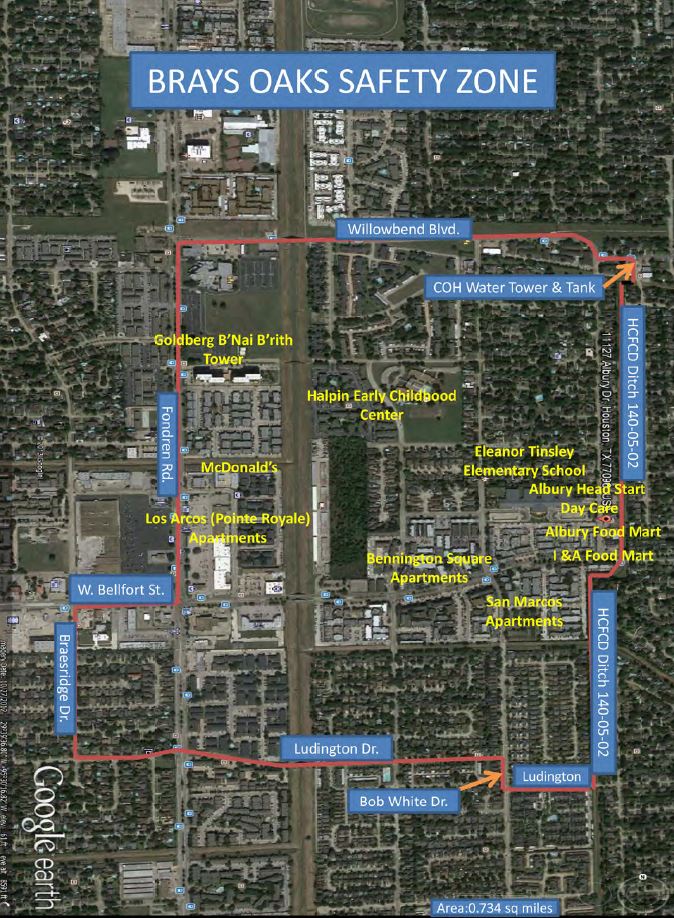What could possibly go wrong? Why stop with blimps? Why not drones? And why not put cameras on those drones? Really, what could go wrong?
16 Members of Warring Gangs Barred From Houston Neighborhood. Is this even constitutional?
May 29th, 2013From ABC News:
Prosecutors in Harris County, where Houston is located, decided to take a civil approach to the criminal problem under Texas’s public nuisance laws. They had to prove to a judge that the individuals were in fact gang members who had criminal records showing that they were nuisances, according to the Harris County Attorney’s office.
The judge ruled in their favor Tuesday, granting an injunction against the 16 gang members.
“This enables us to get injunctions against gang members who are causing nuisances,’ said Laura Cahill, senior assistant county attorney who handled the case.
Of course such an order would not stop a gang member who seeks to enter a particular neighborhood (the Crips and Bloods tend not to be law-abiding), but now the police can arrest any of them and hold them in contempt the moment they step foot inside the so-called “safety zone.”
Has anyone ever seen nuisance law applied in this way? It seems like a huge stretch. Apparently, Harris County has done this before.
The county also used public nuisance laws in order to sue two Brays Oaks convenience stores where gang members were hanging out during the day, Cahill said. The county then worked with the landowners of the properties to put in place more stringent security measures.
Cahill said that a civil injunction banning gang members has happened only once before in Harris County.
The story seems to give so much credit to the government for this creative theory, and makes it seem like the gang members didn’t care enough to show up:
The county attorney’s office presented testimony and evidence in a civil trial Tuesday, including testimony from five Houston police officers.
None of the 16 defendants showed up to court or were represented by attorneys. They have not actively participated in the suit, and four are currently in jail, Cahill said.
But of course, by going the civil, rather than criminal route, the suspects are not given court-appointed counsel. Duh. This is a somewhat perverse attempt at law enforcement.
From a constitutional perspective, what quantum of imminent harm would have to be shown to limit a person’s right to travel within the city. What if one of these gang members lived in this area? Had family there? Worked there? Worshipped there?
I should note that the area cordoned off in the “safety zone” is a traditionally orthodox Jewish area, which borders a not-so-nice area. A synogague I sometimes attend is within the boundaries.
This issue came up years ago when Washington, D.C. imposed massive checkpoints in the Trinidad section in order to combat a wave of crime. As I recall, the D.C. Circuit found that the checkpoints were unconstitutional.
In a strongly worded opinion, the U.S. Court of Appeals for the D.C. Circuit condemned the roadblocks, which police used last summer in the city’s Trinidad neighborhood in Northeast Washington. The checkpoints, which have not been used in about a year, were a response to a spate of shootings, including a triple homicide.
“It cannot be gainsaid that citizens have a right to drive upon the public streets of the District of Columbia or any other city absent a constitutionally sound reason for limiting their access,” Chief Judge David B. Sentelle wrote for a three-judge panel. “It is apparent that appellants’ constitutional rights are violated.”
Granted, limiting access to sixteen known gang members is on a different plane than halting every single person who enters a specific area, but both cases raise issues about a right to travel.
H/T ABA Journal
Update: Apparently the “gang injunction” is fairly common in California. Wikipedia has a pretty decent rundown. San Francisco has a number of these gang enjoined areas. Apparently San Antonio uses these as well. Wow.
H/T Adam Hahn and Barrett Ship


